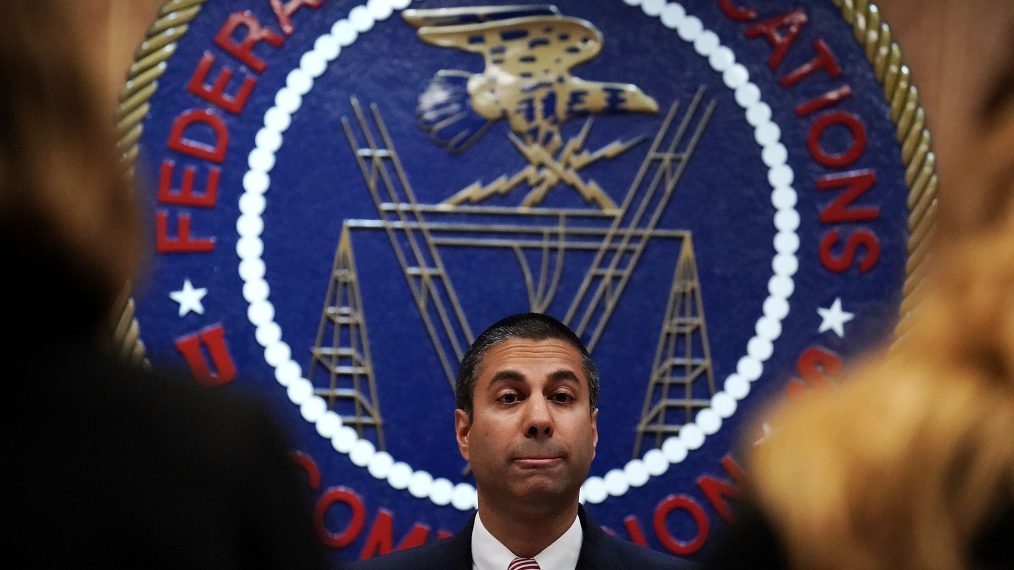What the Heck Is Net Neutrality, and How Could Its Repeal Impact Your Streaming Habits?

On December 14, the Federal Communications Commission voted to roll back its “net neutrality” regulations, which required internet service providers (ISPs) to treat all content delivered over broadband equally. We look at how that could impact your binge-watching habits.
Will this affect access to my favorite streaming shows? Think of the internet as a pipeline that delivers content to your computer, smart TV or device. Your ISP controls the pipes, what gets through them and how fast it reaches you. ISPs could potentially choose to slow down or block access to certain sites while prioritizing others. For example, Comcast—which owns a 30 percent stake in Hulu—could make it easier to watch their shows, like The Handmaid’s Tale, and slow down access to a competitor like Netflix.
Will I have to pay more? Proponents of ending net neutrality protections argue that it’s the free-market approach, encouraging ISPs to invest in broadband infrastructure to improve internet access. But if your provider charges Netflix more to reach you at a usable speed, it’s hard not to imagine the streaming platform eventually passing that cost on to you. Are you willing to pay more for Stranger Things and GLOW?
Internet providers could also create tiered access to certain content, similar to how cable companies charge more for premium channels. And while paying extra to reach subscribers won’t be a huge hardship for big players like Netflix and Amazon, added fees could stifle competition from smaller streaming services like Urban Movie Channel and Acorn TV.
When will this take place? Not right away. Six states have sued the FCC over the rollback and its efforts to prevent states from enacting their own net neutrality protections. Sen. Ed Markey of Massachusetts, along with 27 other lawmakers, has introduced a resolution of disapproval under the Congressional Review Act that, if successful, would overturn the FCC’s move. Markey has several months to convince two-thirds of the House and Senate to back the resolution.








